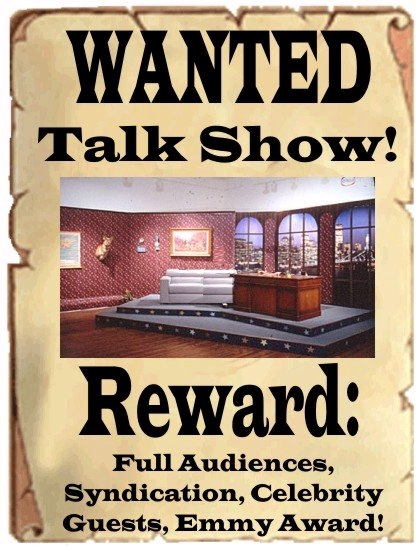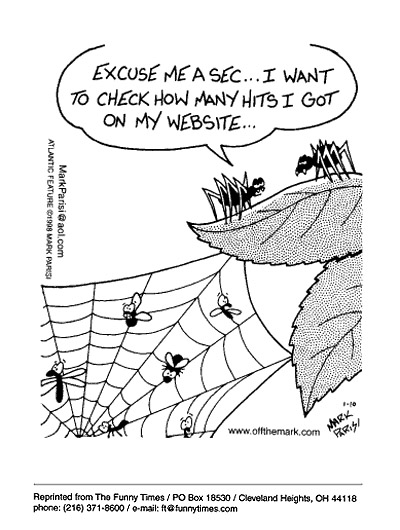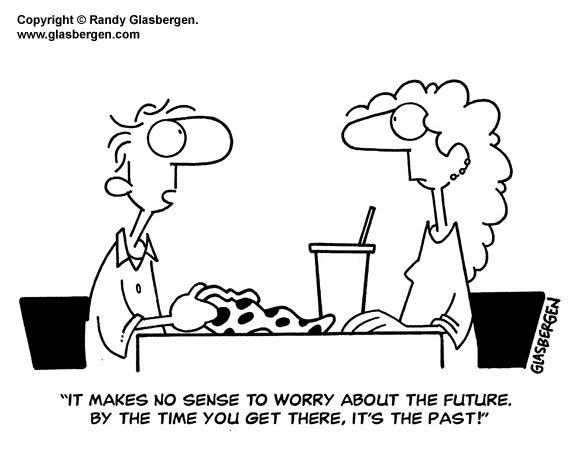Archive
Spain Wins World Cup
 I’m just breaking my own rules and interrupting my holidays to bring all you a breaking blog post! Definitely, the news is worth the effort. We are World Champions!!
I’m just breaking my own rules and interrupting my holidays to bring all you a breaking blog post! Definitely, the news is worth the effort. We are World Champions!!
Just as the famous Paul – the psychic octopus – predicted, Euro 2008 champions Spain, who conceded only two goals during the tournament, deserved their victory after gradually taking a grip on a tense and bad-tempered contest that produced 14 yellow cards with Johnny Heitinga sent off on 109 minutes after picking up a second yellow card.
 .
.
Former Spain coach Jose Antonio Camacho celebrates as Andres Iniesta scores the winning goal against Holland in the World Cup final. On the verge of a heart attack, poor thing!
.
… and my favourite bit after this unforgettable final…
soooooo romantic! It is actually making a clean sweep in most Spanish sports headlines!
Summer Reads
 Perhaps it’s that extra blast of sunlight or our inherent lax attitude to the season. For whatever reason, it just feels like there’s more time to read in the summer. But what to read?
Perhaps it’s that extra blast of sunlight or our inherent lax attitude to the season. For whatever reason, it just feels like there’s more time to read in the summer. But what to read?
Still filling out your list? Here are 5 books to keep you reading all summer long.
1.THE UNCOMMON READER, by Allan Bennet
The Uncommon Reader is none other than HM the Queen who becomes obsessed with books after a chance encounter with a mobile library. The story follows the consequences of this obsession for the Queen, her household and advisers, and her constitutional position.The consequence is, of course, surprising, mildly shocking and very funny.
2. ONE DAY, by David Nicholls
‘I can imagine you at forty,’ she said, a hint of malice in her voice. ‘I can picture it right now.’
He smiled without opening his eyes. ‘Go on then.’
15th July 1988. Emma and Dexter meet for the first time on the night of their graduation. Tomorrow they must go their separate ways. So where will they be on this one day next year? And the year after that? And every year that follows?
Twenty years, two people, ONE DAY.
3. THE GUERNSEY LITERARY AND POTATO PEEL PIE SOCIETY, by Mary Anne Shaffer and Annie Barrows.
The novel is set in 1946 and is in the form of letters, mainly to and from the central character, Juliet Ashton, a successful writer who becomes, wholly coincidentally, involved with a group of people on Guernsey who lived through the wartime German Occupation. The book has something to say about all kinds of things. Among them are friendship, suffering, forgiveness, goodness and wickedness, the resilience of humanity in desperate circumstances, how reading may influence us and the history of the Channel Islanders during the war.
4. THE THIRTEENTH TALE, by Diane Setterfield.
The Thirteenth Tale is a gothic suspense novel published in 2006.Vida Winter, a famous novelist in England, has never been forthcoming when it comes to her past. Her entire life is a secret, and for fifty years reporters and biographers have attempted to discover the truth. With her health quickly fading, Ms. Winter enlists a bookish amateur biographer named Margaret Lea to bear witness to the tragic story of the Angelfield family, their eccentric beginnings as well as their demise. Margaret, who has family secrets of her own, must unravel the mysteries of the past in order to reconcile not only Miss Winter with her ghosts, but also Margaret with her own.
5. HOW TO BE GOOD, by Nick Hornby
How to Be Good is a 2001 novel that centers on characters Katie Carr, a doctor, and her husband, David Grant. Events take a turn when David stops being “The Angriest Man In Holloway” and begins to be “good” with the help of his spiritual healer, DJ GoodNews.The novel has a funny side, mostly due to the conversion of the husband, David, from an angry, cynical and negative man to a “do-gooder.” Nevertheless, its most important subject is the crisis that the couple is going through.
Pick your choice and enjoy your reading! Remember good sites to buy original books on the web are www.play.com and www.thebookdepository.com both offer good prices and free delivery to your door, or www.amazon.com where you can find second-hand books although you’ll have to add up VAT and posting charges.
Work Experience at the British Embassy
ENGLISH STUDENT WANTED
 As Laura so kindly informed us, the British Consulate in Alicante offers a very interesting position you can all apply for.
As Laura so kindly informed us, the British Consulate in Alicante offers a very interesting position you can all apply for.
As quoted in http://ukinspain.fco.gov.uk/en/about-us/working-for-us/22220107 :
“The core of the job will involve attending to members of the public at the front counter, taking telephone calls, answering emails/faxes and ensuring the Consular officers have all the necessary back up, to enable them to give the best service to our customers. The support needed includes filing and general administrative duties.
We are looking for a candidate with proven experience in customer handling, working in a target driven and team environment, well organised, with strong interpersonal skills and experience in office administration. Fluency in English and a good operational level in Spanish (both written and oral) are essential. IT skills are important and the right candidate will have a strong working knowledge of Microsoft windows. Some occasional travel may be required, so a driving licence would be an advantage. You will need to be available to start by the beginning of June. Full induction and training in consular work will be provided to the successful candidate.”
Come on, don’t be shy and take advantage of this wonderful opportunity! And remember, applicants should submit a letter of application in English by email (rrhh@fco.gov.uk),explaining why they believe they meet the requirements of the job, together with their CV in English, by 21st May 2010.
Talk Shows
 A talk show (American and Australian English) or chat show (British) is a television or radio programme where one person (or group of people) will discuss various topics put forth by a talk show host. Sometimes, talk shows feature a panel of guests, usually consisting of a group of people who are learned or who have great experience in relation to whatever issue is being discussed on the show for that episode. Other times, a single guest discusses their work or area of expertise with a host or co-hosts. A call-in show takes live phone calls from callers listening at home, in their cars, etc.
A talk show (American and Australian English) or chat show (British) is a television or radio programme where one person (or group of people) will discuss various topics put forth by a talk show host. Sometimes, talk shows feature a panel of guests, usually consisting of a group of people who are learned or who have great experience in relation to whatever issue is being discussed on the show for that episode. Other times, a single guest discusses their work or area of expertise with a host or co-hosts. A call-in show takes live phone calls from callers listening at home, in their cars, etc.
Television talk shows often feature celebrity guests who talk about their work and personal lives as well as their latest films, TV shows, music recordings or other projects they’d like to promote to the public. The hosts are often comedians who open the shows with comedy monologues and have become a brand in many TV channels. Find below a list of the most popular shows around the world, if you click on the different links, you’ll be taken to the programme’s web.
MOST POPULAR TV TALK SHOWS IN AMERICA
 The Tonight Show with Jay Leno is more than just an hour-long talk show featuring some of Hollywood’s hottest stars and some of the funniest hometown humor on the airwaves. The Tonight Show is the talk show – practically a national treasure – hosted by such greats as Jack Paar and Johnny Carson and is considered to be the longest currently-running regularly scheduled entertainment program in the United States.
The Tonight Show with Jay Leno is more than just an hour-long talk show featuring some of Hollywood’s hottest stars and some of the funniest hometown humor on the airwaves. The Tonight Show is the talk show – practically a national treasure – hosted by such greats as Jack Paar and Johnny Carson and is considered to be the longest currently-running regularly scheduled entertainment program in the United States.
.
Nearly always second in the ratings among morning talk shows, Good Morning America – or GMA- is nowadays hosted by Diane Sawyer and Robin Roberts, the morning news and talk show has grown by leaps and bounds in recent years. It includes a floksy and down-to-earth approach to news and features sections such as news, weather, recipes, health and special-interest stories.
.
Describing The Oprah Winfrey Show is fairly simple. Describing its global impact and the world-wide appeal of its host is not. Let’s just say it, “Oprah is all-powerful.” The way the one-time local Chicago newswoman has developed a career and television show that influences and inspires millions of people around the world is just amazing to behold.
Oprah welcomes guests onto an airy set consisting of a few pieces of comfortable, modern furniture. The audience envelopes Oprah and her guest in a semi-circle. Shows may feature a theme, usually a social issue or topical event, and guests who complement the theme or they may feature celebrity guests. Occasionally the show will devote the hour to one guest or one subject. Spanish newspaper El País offered a leading article about her.
.
 The Ellen DeGeneres Show follows a very particular format. It opens with a topical monologue. Ellen traditionally ends her monologue with a jazzy dance through the audience and to her set. It follows with banter and a comedy bit from the setand interviews complete the programme together with games up to a comedic final act.
The Ellen DeGeneres Show follows a very particular format. It opens with a topical monologue. Ellen traditionally ends her monologue with a jazzy dance through the audience and to her set. It follows with banter and a comedy bit from the setand interviews complete the programme together with games up to a comedic final act.
Since the show’s debut in 2003, Ellen has kept the program light and happy.Ellen’s guests are often A-listers either hawking a project or just sitting down to visit.
.
 Saturday Night Live (SNL) is a live late-night television sketch comedy and variety show. The show’s sketches often parody contemporary American popular culture and politics. Each week, the show features a host who delivers an opening monologue and performs in sketches with the cast. A musical guest is also invited to perform. A failed version of it was tried in Spain; 5 comedians, Eva Hache among them, led the programme together with the celebrity that acted as a guest and co-hosted the show.
Saturday Night Live (SNL) is a live late-night television sketch comedy and variety show. The show’s sketches often parody contemporary American popular culture and politics. Each week, the show features a host who delivers an opening monologue and performs in sketches with the cast. A musical guest is also invited to perform. A failed version of it was tried in Spain; 5 comedians, Eva Hache among them, led the programme together with the celebrity that acted as a guest and co-hosted the show.
.
From New York comes the The Late Show with David Letterman. Letterman, the late night heir to Johnny Carson, hosts one of the longest running late night talk shows in history – 25 years. After a series of shots of New York City as the CBS Orchestra performs the Late Show theme, Letterman walks out on the show stage to perform his stand-up monologue based on pop culture, current events, and politics. He then introduces one or two video jokes such as a running gag or fake commercial/public service announcement. Letterman reads the Top Ten List at this point before turning to guest interviews with a celebrity, politician, or public figure.
.
MOST POPULAR TV CHAT SHOWS IN BRITAIN
 The Graham Norton Show is a comedy late night chat show that is broadcast on BBC One. The show includes strong adult humour along with Graham’s monologue at the beginning of the show and often a musical guest to play out over the credits. Some celebrities have been hesitant of being a guest because of the nature of the show.
The Graham Norton Show is a comedy late night chat show that is broadcast on BBC One. The show includes strong adult humour along with Graham’s monologue at the beginning of the show and often a musical guest to play out over the credits. Some celebrities have been hesitant of being a guest because of the nature of the show.
.
 The Paul O’Grady Show was a BAFTA award-winning British comedy chat show hosted by Birkenhead-born comedian Paul O’Grady. The format was a teatime chat show that consists of a mixture of celebrity guests, comic stunts, musical performances, and occasionally viewer competitions.Also a stalwart of the show was O’Grady’s Shih Tzu/bichon frise cross dog, Buster, who appeared for a full five minutes at the start of each programme.
The Paul O’Grady Show was a BAFTA award-winning British comedy chat show hosted by Birkenhead-born comedian Paul O’Grady. The format was a teatime chat show that consists of a mixture of celebrity guests, comic stunts, musical performances, and occasionally viewer competitions.Also a stalwart of the show was O’Grady’s Shih Tzu/bichon frise cross dog, Buster, who appeared for a full five minutes at the start of each programme.
.
 The Jeremy Kyle Show is a British daytime television talk show presented by Jeremy Kyle that has been broadcast on ITV since 4 July 2005. The show is distinctive for its confrontational style, which sees guests attempt to resolve issues with others that are significant in their lives, such as family, relationship, sex, drug, alcohol and other issues. Frequently, guests display strong emotions such as anger and distress on the show, and Kyle is often harsh towards those that he feels have acted in morally dubious or irresponsible ways, whilst strongly emphasising the importance of traditional family values. This has led to both criticism and parody of the show in newspapers and on television, and even led to the show being described as “human bear-baiting” by a Manchester District Judge, during a prosecution after guests had been involved in a violent incident on the show.
The Jeremy Kyle Show is a British daytime television talk show presented by Jeremy Kyle that has been broadcast on ITV since 4 July 2005. The show is distinctive for its confrontational style, which sees guests attempt to resolve issues with others that are significant in their lives, such as family, relationship, sex, drug, alcohol and other issues. Frequently, guests display strong emotions such as anger and distress on the show, and Kyle is often harsh towards those that he feels have acted in morally dubious or irresponsible ways, whilst strongly emphasising the importance of traditional family values. This has led to both criticism and parody of the show in newspapers and on television, and even led to the show being described as “human bear-baiting” by a Manchester District Judge, during a prosecution after guests had been involved in a violent incident on the show.
.
 Richard & Judy (later known as Richard & Judy’s New Position) is a British magazine/ chat show which was presented by married couple Richars Madeley and Judy Finnigan. It featured the world’s most famous stars, along with their Book Club. In July 2009, the show aired its final episode due to low ratings.
Richard & Judy (later known as Richard & Judy’s New Position) is a British magazine/ chat show which was presented by married couple Richars Madeley and Judy Finnigan. It featured the world’s most famous stars, along with their Book Club. In July 2009, the show aired its final episode due to low ratings.
WHAT ABOUT SPAIN? A BIG CHUNK OF OUR TV SCHEDULING IS GIVEN OVER TO CHAT SHOWS BUT WHO’S YOUR FAVOURITE/MOST HATED TV HOST – Buenafuente, Pablo Motos, Ana Rosa Quintana… – AND WHY?
Speak out!leave a comment on it!
UK Elections Final Episode: Tory-Lib Dem Coalition
David Cameron has become Prime Minister after agreeing a deal with the Liberal Democrats to lead Britain’s first coalition government since the Second World War.
Mr Cameron, 43, becomes the youngest premier since Lord Liverpool almost 200 years ago, and the first Conservative in No 10 since John Major departed 13 years ago.
He promised there would be “hard and difficult work” ahead and said his administration would focus on “rebuilding family, rebuilding community, above all, rebuilding responsibility in our country”.
His appointment followed Gordon Brown’s resignation and brought to an end five days of tortuous negotiations in the wake of last week’s election, which resulted in a hung parliament.
Both Gordon Brown and David Cameron paid tribute to each other and wished each other well in a typically polite British way.
After falling 20 seats short of a majority, Mr Cameron was forced to accept a deal to lead a coalition government with the Lib Dems. It means that five Lib Dems will hold Cabinet posts and a number of high-profile Tory policies will be shelved. The Conservatives have also been forced to offer the Lib Dems a referendum on voting reform.
The Government will be the first coalition since Winston Churchill’s wartime administration 70 years ago. Downing Street announced that Nick Clegg was Deputy Prime Minister, the first Liberal in a Cabinet post since Sir Archibald Sinclair was Secretary of State for Air in Churchill’s wartime government. There are 5 cabinet posts for LibDems.
In a speech that resonated of JF Kennedy inaugural address in 20th january 1961, he asked the British citizens for their share of responsibility
Arriving in Downing Street with his wife, Samantha, at 8.40pm, he said: “I came into politics because I love this country, I think its best days still lie ahead and I believe deeply in public service, and I think the service our country needs right now is to face up to our really big challenges, to confront our problems, to take difficult decisions, to lead people through those difficult decisions so that together we can reach better times ahead.”
The Prime Minister accepted that he would face difficulties having to lead a coalition government. He said: “This is going to be hard and difficult work. The coalition will throw up all sorts of challenges, but I believe together we can provide the strong and stable government that our country needs, based on those values, rebuilding family, rebuilding community, above all, rebuilding responsibility in our country. Those are the things I care about, those are the things that this government will now start work on doing. Thank you very much.”
On yet another breathless day at Westminster, Cameron and his deputy prime minister Clegg held a joint press conference in which both displayed equal enthusiasm for turning their shotgun marriage brought about by a hung parliament, into a genuine partnership.
Clegg said: “Until today we were rivals, and now we are colleagues. And that says a lot about the new politics which is now beginning to unfold. This is a new government and a new kind of government.”
They also published a joint memorandum negotiated over the last five days covering deficit reduction, environment, tax, banking reform, an annual cap on immigration, welfare and relations with Europe.
Tory and Lib Dem leaders declare they are now “colleagues not rivals” and pledge to act “together” in a five-year partnership in their first press conference.
SMS
 Exam markers have expressed concerns over the use of text messaging language in exam answers.
Exam markers have expressed concerns over the use of text messaging language in exam answers.
The proof of its increased usage came when a 13-year-old Scottish schoolgirl handed in an essay written completely in text message shorthand, much to the bemusement of her teacher.
One extract said: “My smmr hols wr CWOT. B4, we used 2go2 NY 2C my bro, his GF & thr 3 :- kids FTF. ILNY, it’s a gr8 plc.”
Can you translate the above passage? check if you understood:
In translation from text messaging shorthand it would read: “My summer holidays were a complete waste of time. Before, we used to go to New York to see my brother, his girlfriend and their three screaming kids face to face. I love New York. It’s a great place.”
Because of the instantaneous nature of texting and the tiny keypads and screens on a cell phone, an entire language has developed around text messaging. For those cell phone owners who do not make use of text messaging, the intricacies of this language can make messages almost incomprehensible.
This language is abbreviated for speed and ease of use. It is a rather phonetic language where single letters or numbers may stand for entire words, such as “Y” for “why” or “8″ for “ate”. Vowels may be omitted to further reduce keystrokes, such as “btwn” for “between” and capitalization and punctuation are rare. Acronyms are used for phrases and whole sentences such as “ADBB” for “all done, bye, bye”. Symbols are also common in text messaging language. Texting allows the user to create “emoticons” or “smileys” to add the tone to a comment. For instance, “thts gr8t :)” would give the statement a positive meaning while typing “THTS GR8T” would indicate a shout for excitement.
There are a number of ways to dive into the world of cell phone texting. One method is to consult a child/teenager who is a habitual user of text messaging. However, for those on their own in the endeavor there are many resources to consult. Online, http://www.netlingo.com/acronyms.php provides references to assist cell phone owners in learning the vocabulary of text messaging. Another site, http://www.lingo2word.com offers a translator to assist cell phone owners in composing a text message or to translate a text message they receive into plain English.
As listened to in class the world record guinness was held by 16-year-old Ang Chuang Yang of Singapore who tapped ”The razor-toothed piranhas of the genera Serrasalmus and Pygocentrus are the most ferocious freshwater fish in the world. In reality they seldom attack a human” in just 41.52 seconds. Nowadays, American-boy Ben Cook has unofficially set the fastest texter world record by tapping it on his 31st attempt in 40.72
R U a txt addict? Do you think txting is killing off the English language? R is it jst gr8 4 tkn 2 m8s?
Suggest a couple of sentences using txt lge and we’ll try to figure out what you mean!!
May FIS
Hi there!
 We believe exam feedback offers many benefits to the hard-working student willing to improve. In short, it highlights what to stop, start and continue doing in your learning process. We already suggested some ideas about it in a previous post.
We believe exam feedback offers many benefits to the hard-working student willing to improve. In short, it highlights what to stop, start and continue doing in your learning process. We already suggested some ideas about it in a previous post.
After a year together, it’s time now to reflect upon your performance and to try and finish once and for all with all these funny little ways some of you still show when using your English.
You all received personal comments on your performance but still, we know some of you like having the exercises done in class to have another go at them at home. Find them attached:
FIS + listening tracks + KEY
As you still have two more opportunities to show your excel at English (final exam 24th May) and September, we’d like you to focus on these criteria to improve your performance:
* full realisation of task: all content points should be included within the number of words requested and including relevant information about them.
*appropriate register and format.
* wide range of vocabulary and structures: try to include all the specific vocabulary and grammar structures learnt in class.
* well-developed control of language: be careful with accuracy, basic mistakes are fatal, e.g. verb/subject agreement, spelling, pronoun agreement, verb tenses, collocations,…
* efective organization of ideas and use of a wide variety of linking devices (linking words, punctuation, parallel structures, adverbials, synonyms, etc)
Reported Speech
 Reported Speech (also referred to as ‘indirect speech’) refers to a sentence reporting what someone has said. It is almost always used in spoken English.
Reported Speech (also referred to as ‘indirect speech’) refers to a sentence reporting what someone has said. It is almost always used in spoken English.
As a rule when you report something someone has said you go back a tense: (the tense on the left changes to the tense on the right). This is because when we use reported speech, we are usually talking about a time in the past (because obviously the person who spoke originally spoke in the past). The basic rules for backshift when transforming direct speech into reported speech are:
| Direct speech | Indirect speech | |
| Present simple She said, “It’s cold.” |
› | Past simple She said it was cold. |
| Present continuous She said, “I’m teaching English online.” |
› | Past continuous She said she was teaching English online. |
| Present perfect simple She said, “I’ve been on the web since 1999.” |
› | Past perfect simple She said she had been on the web since 1999. |
| Present perfect continuous She said, “I’ve been teaching English for seven years.” |
› | Past perfect continuous She said she had been teaching English for seven years. |
| Past simple She said, “I taught online yesterday.” |
› | Past perfect She said she had taught online the day before. |
| Past continuous She said, “I was teaching earlier.” |
› | Past perfect continuous She said she had been teaching earlier. |
| Past perfect She said, “The lesson had already started when he arrived.” |
› | Past perfect NO CHANGE – She said the lesson had already started when he arrived. |
| Past perfect continuous She said, “I’d already been teaching for five minutes.” |
› | Past perfect continuous NO CHANGE – She said she’d already been teaching for five minutes. |
Exceptions –> In up-to-date reporting and when reporting a universal truth or law of nature, the verb tenses can either change or remain the same. For example: He said Paris is/was the capital of France.
Modal verb forms also change:
| Direct speech | Indirect speech | |
| will She said, “I’ll teach English online tomorrow.” |
› | would She said she would teach English online tomorrow. |
| can She said, “I can teach English online.” |
› | could She said she could teach English online. |
| must She said, “I must have a computer to teach English online.” |
› | had to She said she had to have a computer to teach English online. |
| shall She said, “What shall we learn today?” |
› | should She asked what we should learn that day. |
| may She said, “May I open a new browser?” |
› | might She asked if she might open a new browser. |
Note! – There is no change to could, would, should, might and ought to.
Time change
If the reported sentence contains an expression of time, you must change it to fit in with the time of reporting.
For example we need to change words like here and yesterday if they have different meanings at the time and place of reporting.
| Today | + 24 hours – Indirect speech |
| “Today’s lesson is on presentations.” | She said the lesson of the day before was on presentations. |
| Expressions of time if reported on a different day | ||
| this (evening) | › | that (evening) |
| today | › | that day… |
| these (days) | › | those (days) |
| now | › | then |
| (a week) ago | › | (a week) before |
| last weekend | › | the weekend before last / the previous weekend |
| here | › | there |
| next (week) | › | the following (week) |
| tomorrow | › | the next/following day |
In addition, if you report something that someone said in a different place to where you heard it you must change the place (here) to the place (there). For example:
| At work | At home |
| “How long have you worked here?” | She asked me how long I’d worked there. |
Pronoun change
In reported speech, the pronoun often changes to match the subject of the sentence. For example:
| Me | You |
| “I teach English online.” | She said she teaches English online. |
There are special reported sentences one needs to be careful with:
Questions
Reporting questions are usually introduced by ask, inquire, wonder, want to know, etc. When reporting questions, it is especially important to pay attention to sentence order. When reporting yes/ no questions connect the reported question using ‘if’. When reporting questions using question words (why, where, when, etc.) use the question word.
For example:
- She asked, “Do you want to come with me?” BECOMES She asked me if I wanted to come with her.
- Dave asked, “Where did you go last weekend?” BECOMES Dave asked me where I had gone the previous weekend.
Commands, requests, suggestions
To report commands, instructions, requests or suggestions, we use an appropriate introductory verb – ask, order, beg, suggest, tell, etc – and the to-infinitive, -ing form or that-clause depending on the verb. Check this list of reporting verbs if in doubt.
For example:
- “Stop the car!”the policeman said to him BECOMES The policeman ordered him to stop the car.
- “How about going to the cinema?”, I said to them BECOMES I suggested going to the cinema.
Did you say you need any further practice? Find it at ESL tests
Following the unit, I’d like you to practise your reported speech by quoting some of our politicians. Check this web www.brainyquote.com to see some of their most memorable quotes. John F. Kennedy, for example, said:
“When written in Chinese, the word “crisis” is composed of two characters. One represents danger and the other represents opportunity.
You can keep looking for more just by typing the name of other politicians. There is even a section for our crisis time. Enjoy!
Oral Presentation: MSF
By Inma Quiles
MSF, a well-known NGO, is an independent and international medical humanitarian organization. Although this is not an original topic, I have chosen it because, in my opinion, MSF is carrying out an important work and, on the other hand, I think that someone can be interested in it.
HOW WAS IT BORN?
MSF was born in the early 70s out of the exasperation of a group of French doctors, who worked in desperate conditions in the Biafra War (1967-1970), because they did not agree with the conditions and the violation of Human Rights there. On the other hand, another group of French doctors, who worked in Bangladesh, did not agree with the delivery of international aids, which they thought unfair so, both groups decided to join, and together with a group of journalists, to set up a new organization in order to work, wherever it was necessary, irrespective of race, religion or political system, to alleviate human suffering, to protect life and health, and to restore to people their fundamental Human Rights
Nowadays, MSF is a worldwide organization, which works in more than 60 countries with 19 offices and three Logistics Centres all over the world; its actions are guided by medical ethic and the principles of neutrality and impartiality, evaluating medical needs, and giving priority to those population in serious danger.
WHERE DOES IT WORK?
It usually works, in places where there are armed conflicts, epidemics, natural or man –made disasters, or in places, where people are excluded from healthcare, that happens mainly in Africa, Asia, Central and South-America.
It acts, in emergencies and in its aftermath, rehabilitates and runs hospitals and clinics, performs surgeries, battles epidemics, carries out vaccination campaigns, operates feeding centres for malnourished children and offer mental health care, when it is necessary. It too, dispenses clean drinking water and provides shelter materials like blankets and plastic sheeting and provides training to local people. Also, trough longer-term programmes, MSF treats patients with infectious diseases, such as: TBC, Sleeping illness, Cholera, Chagas and AIDS… and provides medical and psychological care to marginalized groups, such as street children.
MSF, never takes side in armed conflicts, and in addition to this, it acts as a witness, speaking out about the plight of victims. For all these reasons, it won the 1999 Nobel Peace Prize
HOW DOES IT WORK?
When they detect a problem, through news, international organisms, MSF workers or through another different way, an Emergency Unit moves to this area. This Unit evaluates the situation in the field and elaborates a report, which is sent, if they consider that it is necessary to act there, to a Coordination office, where a medical team organize a project, and they send professionals and material ( from Logistics Centres) towards these areas.
In case of an emergency, people and material are sent quickly without a project previous
HOW IS IT SUPPORTED?
MSF is an independent organization, for this reason, it is supported mainly by members and collaborators.
-89% of its financing is got from individual donations.
-11% of its financing is got from organisms.
Donations give them independence from political interference and allow them to act without delay or obstruction.
WHO WORKS FOR MSF?
A lot of people work for MSF, medical staff such as doctors ( paediatricians, surgeons, anaesthetists), nurses, midwives, pharmacists, biologists, nutritionists, epidemiologists…also non-medical background to fill a variety of support and coordinator roles, such as engineers, administrative staff, logistic experts, biomedical scientist etc.
-In Offices, the administrative staff receive information about medical and humanitarian needs in a specific area. Moreover, they recruit volunteers, collect donations and buy material, which is stored in Logistic centres.
– Overseas staff are people who work all over the world in these projects, giving medical and technical assistance to population in danger. They bring motivation, professional abilities and practical experience to projects. The work is tough and, demanding, but rewards are immense. Placements in these areas can be dangerous, but their strict security policies ensure that risks to project workers are minimised. Medical activities vary with each project, from a simple curative work to help to build up a medical infrastructure.
REQUIREMENTS
To work overseas, it is necessary
– To have at least two years of experience in your job
– To have availability and capacity to move, for a minimum of six months, since they think that this time is the minimum time necessary to know and to adapt to a project
– To have knowledge about computer and languages,( English / French )
-To have some experience in organization and management
– To have some experience in tropical medicine
If it is the first time that a person works for MSF, is recommendable to be between 25 and 40 years old.
-Family is not allowed to move with them.
They have a contract and insurances and they have a remunerative work, their monthly salary is about 740 € in order to pay their expenses, lodging, transport and feeding are in charge of MSF
If you are interested in working or supporting them , you can put in touch with the organization by email. The address is http://www.msf.es
UK Elections. And the Winner is…
UK 2010 ELECTION RESULTS
| Party | Seats | Change | Vote % | |
|---|---|---|---|---|
| Conservative | 306 | +97 | 36.1 | |
| Labour | 258 | -91 | 29.0 | |
| Liberal Democrat | 57 | -5 | 23.0 |



No Party has been able to secure an outright majority in the House of Commons and there will now be a frantic period of negotiation to decide the shape of the next government. Nick Clegg is getting offers from both Labour and Conservative to form an alliance. Which one will it be?

With all election results declared, it emerges Britain has its first hung parliament since 1974. The Conservatives are the largest party, but will fall short of the 326 seats needed to form a majority government. Labour loses more than 80 seats, and the Liberal Democrats fail to make gains.Which party is in a position to form the next government will become clear in the following hours or days. So far, conservative party leader David Cameron has made a “big, open and comprehensive” offer to Liberal Democrats.
Actually,there is no formal deadline for when an administration must be formed but a key date is 25 May, when the Queen’s Speech is due to set out the government’s priorities during the Parliament. Negotiations to form a government in a hung Parliament could take between a week and 10 days. Now, we can do nothing but wait till then!
Meanwhile, enjoy the general election 2010 highlights: party leaders, winners and losers
And this is what the general public think about it.
http://www.guardian.co.uk/politics/video/2010/may/07/general-election-2010-voxpops
Not sure they match your political ideas? you don’t know who you would have voted for? Don’t worry, reading manifestos is no longer needed, The Telegraph would make the decision for you.
Vote Match is a guide which helps you determine who you should vote in the 2010 UK General Election by matching your views on the issues most important to you with each political party’s policies. Select a nation (choice won’t affect results) and answer these questions to know which party you would belong to if you were British.
Adverbs
Adverbs of time: now, then soon, later, early, often
Adverbs of place: here, there, near, forward, far
Adverbs of degree: very, so, much, too, extremely, rather
Adverbs of cause: why, therefore, hence
- careful with spelling changes
- gentle-gently
- happy-happily
- awful-awfully
- dramatic-dramatically
- polite-politely But: true-truly
- careful with elderly, cowardly, friendly, likely, deadly, lively,
- lonely, silly, ugly, lovely… they are ADJECTIVES!
The adverbs loud (ly), cheap(ly), quick(ly), tight(ly), fair(ly) and slow(ly) are often used without –ly in everyday English. Come here quick/quickly
- The treasure was buried deep underground (= a long way down)
- He is deeply in love with her (=very)
- The hotel guests can use the swimming pool free (=without payment)

- The animals in the safari park can roam freely (= without limit/restriction
- The kite flew high in the sky (= at a high level)
- He is a highly respected doctor (= very much)
- She arrived late for the meeting (=not early)
- He hasn’t been feeling well lately (=lately)
- Which of his songs do you like most? (=superlative of much)
- I’m mostly interestes in modern art (=mainly)
- As he came near, I realised that something was wrong (=close)
- She nearly fainted when she heard the news (=almost)
- He is a pretty strange man (=rather)
- The bridesmaids were prettily dressed in pink (= in a pretty way)
- He is working hard these days (= with a lot of effort)
- They hardly* go anywhere now that they have children (=almost never)
* As ‘hardly’ is a negative word, it turns the sentence negative
Now, it’s your turn:
Underline the correct choice:
- This is a pretty/prettily complicated situation.
- They had hard/hardly been home for a minute when the phone rang.

- My friends are most/mostly vegetarians.
- Her loose outfit allowed her to move free/freely.
- The shelf was so high/highly that he couldn’t reach it.
- John may be late/lately home tonight, as he has a lot of work to do.
- The room was pretty/prettily decorated.
- Children under 5 travel free /freely.
- Sue has near/nearly finished her homework.
- They have been going out a lot late/lately.
- This college is high/highly recommended for its range of courses.
- The miners dug deep/deeply to find a coat.
- The new supermarket is very near/nearly our house.
- He is deep/deeply involved in the scandal.
- We found it hard/hardly to get used to living in a foreign country.
- Which of Mel Gibson’s films do you like most/mostly?
Check the key if in doubt
Writing a Short Story
 Some of the best fictional stories are short stories. A short story is a usually a fictional story, short enough to be read in one sitting, hence the name “short story”. The thing about short stories is that because they are short , the idea is to keep it fairly simple and make it fairly fast paced.
Some of the best fictional stories are short stories. A short story is a usually a fictional story, short enough to be read in one sitting, hence the name “short story”. The thing about short stories is that because they are short , the idea is to keep it fairly simple and make it fairly fast paced.
Before you start writing it is a good idea to briefly plan out your story. Make a list of possible characters and describe briefly what you want to happen in your story. In your plan you should have an introduction paragraph that sets the scene and introduces your characters. There should be a few paragraphs in the middle of your story, these should be where all the action happens and should be the core of your story. Always finish with a conclusion that rounds it all up and brings the story together.
Include enough detail to let your readers picture the scene but only details that actually add something to the story. The setting includes the time, location, context, and atmosphere where the plot takes place. When describing your setting, use two or more senses to make it more vivid.
When writing short stories, keep the number of characters in your story to a minimum. If you spend all your time introducing characters, your reader may lose interest and you may run out of time for all the action of your story. Make sure that all the characters you include are necessary to your story. In order to develop a living, breathing, multi-faceted character, it is important to know very well the character that you will use in the story. Your reader probably won’t need to know much more than the most important things:
- Appearance. Give your reader a visual understanding of the character.
- Action. Show the reader what kind of person your character is, by describing actions rather than simply listing adjectives.
- Speech. Develop the character as a person — don’t merely have your character announce important plot details, make it participate in dialogues.
- Thought. Bring the reader into your character’s mind, to show them your character’s unexpressed memories, fears, and hopes.
Once details have been decided and a plan has been outlined, divide your story into three main parts:
* Your introduction should make an impact on your reader. The idea is to create just enough excitement that the reader desires to read on. In today’s fast-moving world, the first sentence of your short story should catch your reader’s attention with the unusual, the unexpected, an action, or a conflict. Begin with tension and immediacy.
*The core of your story is where it all happens. This can be just a couple of paragraphs or several depending on the length you intend your story to be. Pace your story out over a few paragraphs but remember not to give more information than necessary. Try to keep it simple and to the point. Try to keep the reader interested, intrigued or guessing. Concentrate on what your story is about and try not to go off track on to information that is not needed. Keep it to the point and keep your reader interested. You do not have much time in a short story to explain yourself, so describe your scenes well and with descriptive words. Be careful not to over use big words and create a story full of fancy language, keep it direct and simple. You story should flow from one paragraph into the next. As you come towards the end of the core part of your story, start to finish the story up, or prepare it for the big conclusion.
*The conclusion is where it all ends up. Your conclusion should be one to two paragraphs and it should bring the whole story together. It should answer any questions raised in the core part of the story, and finish off the story. You can conclude your story with a bit of a twist or a surprise to keep the reader guessing or wondering what would be next, but it does however need to bring a feeling of finality to the reader. Sometimes the best short stories are the ones that leave you guessing, so do not be afraid to create a bit of mystery in your conclusion but make sure the story feels finished and concluded.
Now it’s your turn to give it a go! Write a story set within the context of a natural or an environmental disaster.
Natural Disasters
A natural disaster is the effect of a natural hazard (e.g. fire, land movement, water or weather disasters) that affects the environment, and leads to financial, environmental and/or human losses. Sometimes human beings take a very active part in provoking it. Have a look at this presentation to know more about it.
Earth Day
 Communities, businesses, and neighbourhoods are all honouring Earth Day with events that highlight eco awareness and our planet. Earth Day started as a way to recognize that the Earth needed help and many use the annual celebration to kick off new environmental goals and commitments.
Communities, businesses, and neighbourhoods are all honouring Earth Day with events that highlight eco awareness and our planet. Earth Day started as a way to recognize that the Earth needed help and many use the annual celebration to kick off new environmental goals and commitments.
Fortunately, many businesses and individuals now look to Earth Day to celebrate success milestones and, more importantly, build on that success for the future. In fact, were you aware that Earth Day is now observed in 175 countries and is the largest secular modern day holiday in the world?
A little history lesson to start: Earth Day was first conceived by Sen. Gaylord Nelson in the early 1960s. Nelson worried that environmental issues were not being addressed in the political arena. In his conservation efforts, Nelson organized a nationwide grassroots demonstration in the spring of 1970, to further promote conservation involvement and awareness. Support for and interest in the activity was immense and the 1970 demonstration became the first official Earth Day.
How do you plan to celebrate Earth day? Leave a green tip in the comments section.
Remember we must help protect the environment Earth Day and every day. Check this website to pick your choice among these 100ways to reduce your impact. Just place your mouse gently on each of the tips and an explanation will come up.
Oral Presentation: Top 5 Weirdest Websites
The reason I chose this topic is because nowadays the Internet can be an interesting tool to enjoy ourselves and improve our English as well. If you’re surfing on the Internet, it could be a good idea to practise your English vocabulary playing iSketch, to test your listening skills paying attention to the getmooth’s audio recording, or to get more fluent in your spoken English using chatroulette. As you know, the Internet’s totally full of possibilites!
But watch out! You should be specially careful with Chatroulette. It’s totally out of control with no censure and there’re people (Specially men) who show everything. If you try it, you’ll realize what I mean (LOL). But without a doubt, it’s a great application to have a good time.
Have a look at this powerpoint to find out which the weirdest webs are:
Gourmet’s Pick
This is a tour of some top restaurants made by the most discerning palates in Elche.
Like vs As
Have you ever experienced any difficulties in distinguishing like /as when writing a composition? Our colleague Encarni has prepared a wonderful tutorial for you all to understand it once and for all. Thank you Encarni for such a thorough work.
Take this test on As vs Like to check you understood it all.
How to write a Good Book Review
 The book reviewer has to summarize and discuss the content and the theme, assess the author’s ability to express and explore this theme, and provide an opinion of the novel.
The book reviewer has to summarize and discuss the content and the theme, assess the author’s ability to express and explore this theme, and provide an opinion of the novel.
The aim of a book review is to communicate to the reader’s mind the ideas and sensations you experienced while reading the book.
A good review should include:
- The setting—where does the story take place? Is it a real place or an imaginary one?
- The time period—is the story set in the present day or in an earlier time period? Perhaps it is even set in the future! Let your reader know.
- The main character(s)—who is the story mostly about? Give a brief description. Which is your favorite character?
- The plot—what happens to the main character? WARNING! Be careful here. Do not fall into the boring trap of reporting every single thing that happens in the story. Just summarize the basics. In this particular book review we are far more interested in your opinions than in a rewrite of the plot, so keep it simple.
- Your opinion. Once you have described the basics the book, you can tell what you think about it. Some questions you might want to answer are:
- Did you like the story? Why or why not?
- What was the best part of the book? Why? And the worst?
- How did the story make you feel? Did you feel different things at different points in the story?
- Would you change the end or any other part of the story?
- Would you recommend it to friends? Why (not)?
- Would you read other books by this author?
- What interesting vocabulary did you learn from this book?
Find below nice expressions to use in your summary:
| The writer
The author |
wants to
intends to |
show that…suggest that …
indicate that …. make us feel that .. make us realize that .. make us understand that .. |
| wants | the reader to feel that …us to realize that …
the audience to understand … us to ….. |
About the book in general:
| • What I find the most | striking
incredible interesting ironical ridiculous impressive threatening unpleasant |
in
about |
this .. is that … |
| • What strikes me the most | in
about |
…. | is the fact that…is the notion that…
is the idea that… |
| • It makes me think of / It reminds me of / This obviously refers to, alludes to… | |||
You can also use the latest collocations we have learnt: breathtakingly beautiful, notoriously difficult, hilariously funny, exceedingly harsh, utterly devoted, blissfully happy…
Future Time in the Verbs
Have a look at this tutorial about the different future expressions and try and complete these exercises. Thank you Encarni for sharing this great work. (key)
English Articles: A / An / The
English has two articles: the and a/an. The is used to refer to specific or particular nouns; a/an is used to modify non-specific or non-particular nouns. We call the the definite article and a/an the indefinite article.
For example, if I say, “Let’s read the book,” I mean a specific book. If I say, “Let’s read a book,” I mean any book rather than a specific book.
Let’s look at each kind of article a little more closely.
Indefinite Articles: a and an
“A” and “an” signal that the noun modified is indefinite, referring to any member of a group. For example:
- “My daughter really wants a dog for Christmas.” This refers to any dog. We don’t know which dog because we haven’t found the dog yet.
Remember, too, that in English, the indefinite articles are used to indicate membership in a group:
- I am a teacher. (I am a member of a large group known as teachers.)
- Brian is an Irishman. (Brian is a member of the people known as Irish.)
- Seiko is a practicing Buddhist. (Seiko is a member of the group of people known as Buddhists.)
Remember, using a or an depends on the sound that begins the next word. So…
- a + singular noun beginning with a consonant: a boy; a car; a bike; a zoo; a dog
- an + singular noun beginning with a vowel: an elephant; an egg; an apple; an idiot; an orphan
- a + singular noun beginning with a consonant sound: a user; a university
Count and Uncount Nouns
The can be used with uncount nouns, or the article can be omitted entirely.
- “I love to sail over the water” (some specific body of water) or “I love to sail over water” (any water).
A/an can be used only with count nouns.
- “I need a bottle of water.”
Definite Article: the
The definite article is used before singular and plural nouns when the noun is specific or particular. The signals that the noun is definite, that it refers to a particular member of a group. For example:
“The dog that bit me ran away.” Here, we’re talking about a specific dog, the dog that bit me.
It is also used before superlatives He is the fastest man ever, with national groups The English love tea, with inventions and species of animal, e.g. the computer, the polar bear, when there is only one of something, e.g. the Moon.
Geographical use of the
There are some specific rules for using the with geographical nouns.
Do not use the before:
- names of most countries/territories: Italy, Mexico, Bolivia; however, the Netherlands, the Dominican Republic, the Philippines, the United States
- names of cities, towns, or states: Seoul, Manitoba, Miami
- names of streets: Washington Blvd., Main St.
- names of lakes and bays: Lake Titicaca, Lake Erie except with a group of lakes like the Great Lakes
- names of mountains: Mount Everest, Mount Fuji except with ranges of mountains like the Andes or the Rockies or unusual names like the Matterhorn
- names of continents (Asia, Europe)
- names of islands (Easter Island, Maui, Key West) except with island chains like the Aleutians, the Hebrides, or the Canary Islands
Do use the before:
- names of rivers, oceans and seas: the Nile, the Pacific
- points on the globe: the Equator, the North Pole
- geographical areas: the Middle East, the West
- deserts, forests, gulfs, and peninsulas: the Sahara, the Persian Gulf, the Black Forest, the Iberian Peninsula
Omission of Articles
Some common types of nouns that don’t take an article are:
- Names of languages and nationalities: Chinese, English, Spanish, Russian
- Names of sports: volleyball, hockey, baseball
- Names of academic subjects: mathematics, biology, history, computer science
Check your articles by completing these tests:



















